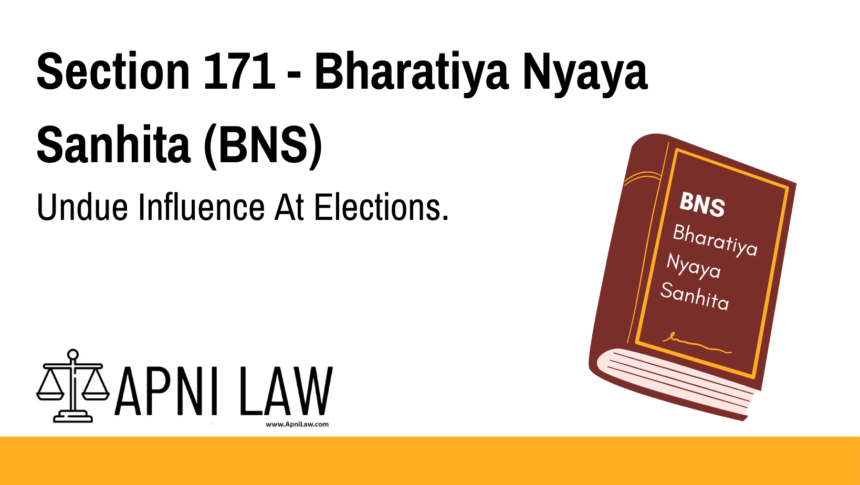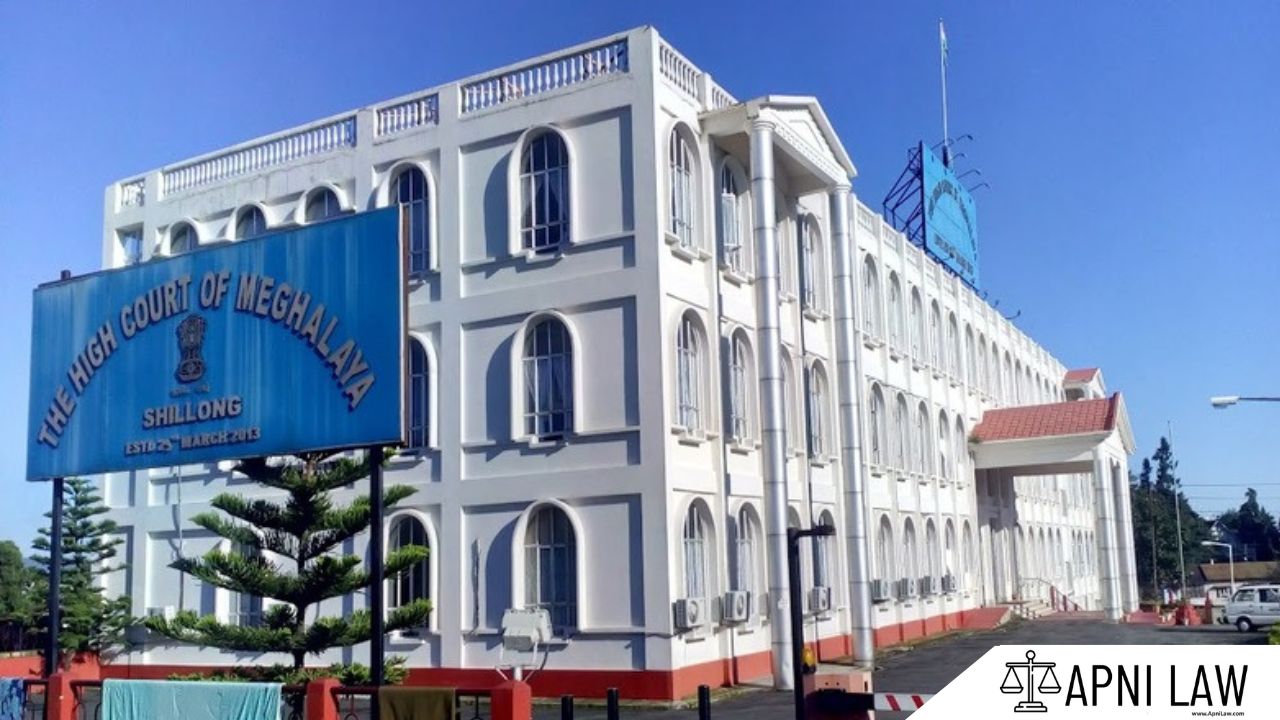Code: Section 171 BNS
(1) Whoever voluntarily interferes or attempts to interfere with the free exercise of
any electoral right commits the offence of undue influence at an election.
(2) Without prejudice to the generality of the provisions of sub-section (1), whoever—
(a) threatens any candidate or voter, or any person in whom a candidate or voter
is interested, with injury of any kind; or
(b) induces or attempts to induce a candidate or voter to believe that he or any
person in whom he is interested will become or will be rendered an object of Divine
displeasure or of spiritual censure,
shall be deemed to interfere with the free exercise of the electoral right of such candidate or
voter, within the meaning of sub-section (1).
(3) A declaration of public policy or a promise of public action or the mere exercise or
a legal right without intent to interfere with an electoral right, shall not be deemed to be
interference within the meaning of this section.
Explanation of Section 171 BNS
Section 171 of the Bharatiya Nyaya Sanhita (BNS) addresses the serious offense of undue influence during elections. It ensures that the integrity of the voting process remains intact, and voters are not coerced or manipulated into making decisions against their free will.
Key points in this section include:
- Undue influence involves using force or intimidation on voters or otherwise interfering with their free choice.
- Punishment for this offense can be imprisonment, a fine, or both, as per the discretion of the Court.
- This section also disqualifies offenders from contesting elections for a specified period.
Illustration
Example 1: Coercion at Election
During an election, a candidate sends a group of individuals to a polling station to intimidate voters into casting their ballots for the candidate. The individual caught in this activity is prosecuted under Section 171 BNS for undue influence.
Example 2: Offering Bribes for Votes
A candidate offers voters money or goods in exchange for their vote. This is another form of undue influence, and the candidate could face penalties as prescribed in Section 171 BNS.
Common Questions and Answers on Section 171 BNS
1. What constitutes undue influence in an election?
- Answer: Undue influence in elections involves the use of force, intimidation, threats, or any other method to interfere with a voter’s ability to freely cast their vote.
2. What is the punishment for undue influence during elections?
- Answer: The punishment may include imprisonment for up to two years, a fine of up to five thousand rupees, or both.
3. Can someone convicted under Section 171 BNS contest elections in the future?
- Answer: No, individuals convicted under this section may be disqualified from contesting elections for a period determined by the Court.
Conclusion
Section 171 BNS plays a critical role in safeguarding the democratic process by ensuring that elections remain fair and free from coercion. Those who attempt to manipulate voters through undue influence can face severe penalties and disqualification from future elections, helping to maintain the integrity of the electoral system.








